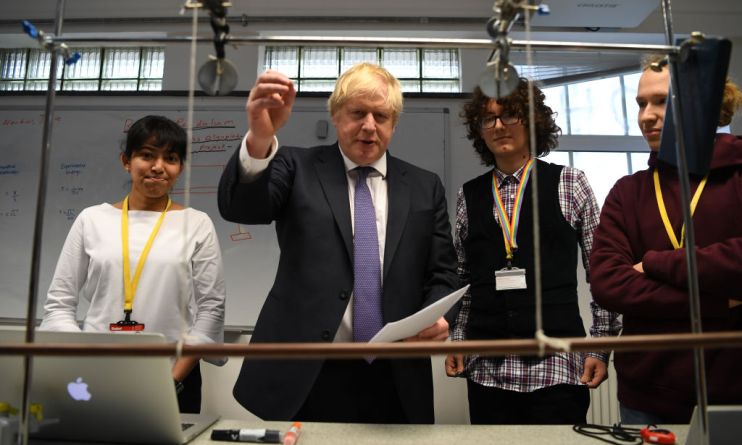Boris Johnson pledges ‘progress for UK’ as Huawei decision looms

Boris Johnson has said he will not block “technological progress here in the UK”, in a further signal the government is poised to give Huawei a limited role in the country’s 5G rollout.
The Prime Minister, shrugged off criticism from the former foreign affairs select committee chair Tom Tugendhat over the pending decision, insisting that letting the tech giant get involved in building the UK’s 5G network would hand power to the Chinese government.
But, in doing so, he effectively confirmed that Huawei would get a role in constructing the 5G infrastructure, noting there was “a very, very important strategic win” for the UK.
He said: “The way forward for us clearly is to have a system that delivers for people in this country the kind of consumer benefits that they want through 5G technology or whatever but does not in any way compromise our critical national infrastructure, our security or jeopardise our ability to work together with other intelligence powers around the world. The Five Eyes security relationships we have, we’ve got to keep them strong and safe.”
Johnson added: “We are going to come up with a solution that enables us to achieve both those objectives and that’s the way forward.
“There’s no reason why we shouldn’t have technological progress here in the UK, allow consumers, businesses in the UK access to have access to fantastic technology, fantastic communications, but also protect our security interests and protect our key partnerships with other security powers around the world.”
The National Security Council is thought to be meeting tomorrow, where a decision is expected to be signed off.
It is then thought culture secretary Baroness Morgan will update parliament from the House of Lords.
Downing Street has declined to comment on the specifics.
But the government came under fire from a number of MPs for potentially risking the UK’s standing with security allies, as well as its own security.
Tugendhat, who is seeking re-election as the chair of the foreign affairs select committee, warned the government that its decision could “nest a dragon” within the UK’s telecoms infrastructure.
Allowing Huawei to play a role in 5G would amount to letting “the fox into the henhouse”, he added.
Former party leader Iain Duncan Smith, who chaired Johnson’s leadership campaign during the summer, said: “Given the fact that we are at war, in a sense – there is a cyber war going on, in which China is arguable the single biggest participant – that we should think about giving a company which is heavily subsidised by China, a country that has set out to steal data non-stop, and also technology, that we think of giving to them that right to be in what is essentially a very, very delicate area of our technology, the idea that we would do that seems to me utterly bizarre.
“I was led to believe that this government would not make that decision. I hope that that will now reject Huawei immediately.”
Julian Lewis, the former chair of the defence committee, called for the intelligence and security committee to investigate any decision, while Bob Seeley posed a series of questions.
“Why is it argued that you could limit Huawei to the periphery of the network when Australia and the United States don’t agree, and when of the head of Australia’s cyber agency says the distinction between core and edge in 5G collapses? A threat in the network anywhere is a threat everywhere,” he said. “Why is it said that the risks are manageable, when our allies say not? Why have previous ministers claimed that Huawei is a private firm when in no way is that true? Why are we told that there are no alternatives when there are?”
But Crispin Blunt, who also previously chaired the foreign affairs committee, argued the US position “thinly disguises” a protectionist position.
Without prove that its security concerns are valid, the government should ignore them, he added.
Main image: Getty